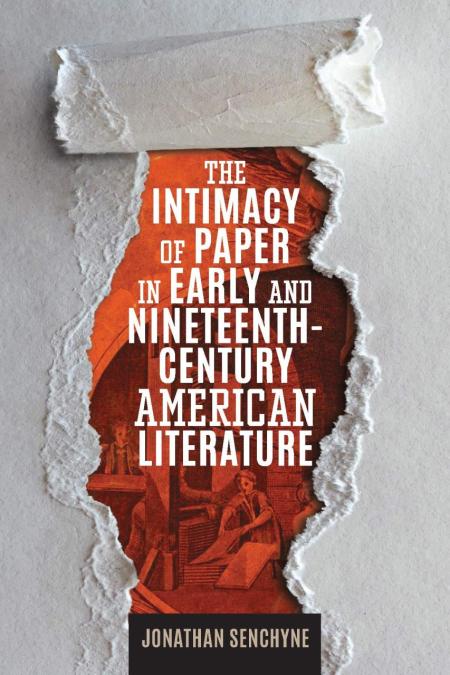
American Antiquarian Society
185 Salisbury Street
Worcester, MA 01609
United States
The true scale of paper production in America from 1690 through the end of the nineteenth century was staggering, with a range of parties participating in different ways, from farmers growing flax to textile workers weaving cloth and from housewives saving rags to peddlers collecting them. Making a bold case for the importance of printing and paper technology in the study of early American literature, Jonathan Senchyne presents archival evidence of the effects of this very visible process on American writers, such as Anne Bradstreet, Herman Melville, Lydia Sigourney, William Wells Brown, and other lesser-known figures.
The Intimacy of Paper in Early and Nineteenth-Century American Literature reveals that book history and literary studies are mutually constitutive and proposes a new literary periodization based on materiality and paper production. In unpacking this history and connecting it to cultural and literary representations, Senchyne also explores how the textuality of paper has been used to make social and political claims about gender, labor, and race.

Jonathan Senchyne is an Associate Professor of Book History and Print Culture in the Information School and Director of the Center for the History of Print and Digital Culture at the University of Wisconsin-Madison. He is also an affiliated faculty member in the Digital Studies and Material Culture Studies programs. He has been a National Endowment for the Humanities Fellow at the American Antiquarian Society and was the Pine Tree Foundation Distinguished Visiting Fellow in the Future of the Book in a Digital Age at the Graduate Center of the City University of New York, Senchyne researches and teaches the history of the book and print culture in early and nineteenth-century America. This also touches on work in American studies, American literary history, critical theory, material culture, digital humanities, library history, and archival theory and practice.